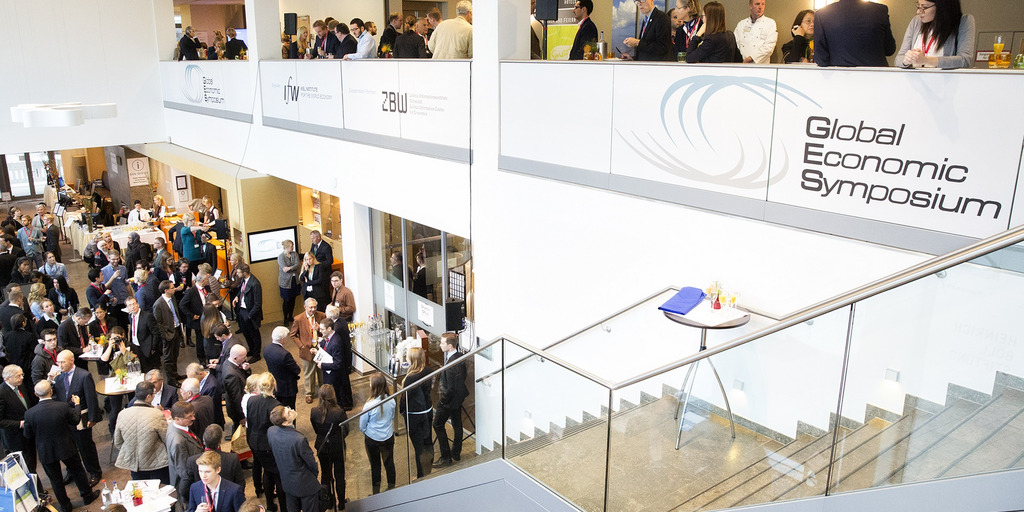
© GES / christina kloodt fotografie
The Bertelsmann Stiftung at the Global Economic Symposium 2015
„Values to Guide Economies” was the motto of this year’s meeting of some 450 leaders from business, politics, academia, media and other civil society organsiations. The first day of the symposium got underway with a study presentation moderated by the Chairman of the Bertelsmann Stiftung, Aart De Geus. The BSt study on the Sustainable Development Goals was presented in the plenary session by Christian Kroll. In the subsequent panel discussion, Peter Bakker, President of the World Business Council for Sustainable Development, and Barbara Unmüßig, President of the Heinrich Böll Stiftung, appraised the Bertelsmann Stiftung’s work as highly valuable in that it drew needed attention to the new UN objectives. They called on stakeholders within civil society, in particular foundations and researchers, to remind heads of government to adhere to the declaration signed in New York over the next fifteen years and to develop viable solutions modeled on those of the trailblazers identified in the BSt study.
In a session on the second day, experts invited by the Bertelsmann Stiftung addressed the question “Equality and Growth in Europe: From Antagonism to Symbiosis?”. Daniel Schraad-Tischler’s study “Social Justice in the EU 2015,” which is due to be published shortly, served as the basis for this discussion of the tension between growth and equality. Here, Aart De Geus debated with London School of Economics professor Sir John Hills, HSH Nordbank’s Supervisory Board chair Thomas Mirow, and Prof. Frank Vandenbroucke, former Belgian foreign and employment minister. The exchange made it clear that fighting inequality is not only of moral value, but can also be a positive economic factor. Above all, however, it stressed that growing inequality diminishes opportunities for participation in society, thus impeding upward mobility among disadvantaged children and youth.
The third day of the symposium featured a session on the subject of mega-regional trade agreements and their economic and political effects on the international trade system. The Global Economic Dynamics project organized the discussion, in which former WTO head Pascal Lamy, Prof. Bernhard Hoekmann of the European University Institute in Florence, WTI director Prof. Joseph Francois, journalist Petra Pinzler of Die Zeit, and our colleague Andreas Esche, director of the program Shaping Sustainable Economies, all took part. The debate revolved around the question of how modern free trade and the associated agreements focusing in particular on nontariff areas should be bilaterally and multilaterally organized and communicated.
Contact: Stefan Empter, Andreas Esche




